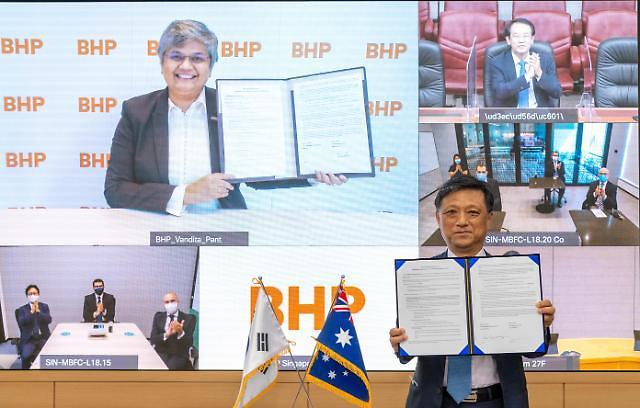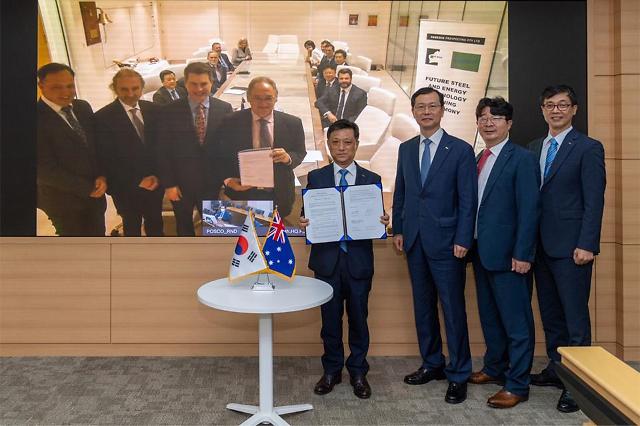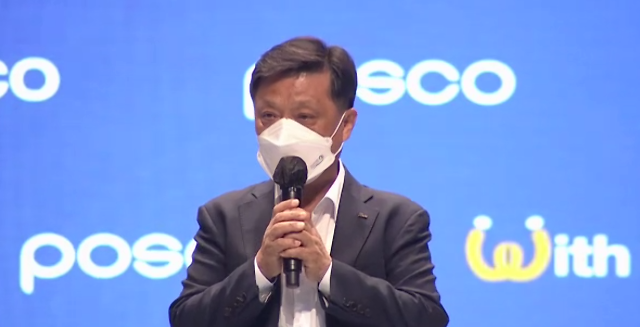
[Aju News DB]
SEOUL -- South Korea's steel group POSCO will lead a state-sponsored demonstration project to capture carbon dioxide from high-temperature emissions in steel manufacturing and convert it into coke oven gas that can be used as a heat source for by-product gas power generation.
POSCO has promoted the development of carbon capture utilization (CCU) technology. "We hope the level of CCU technology in South Korea will grow to the next level through the world's first large-capacity CO2 collection and conversion technology demonstration project," POSCO's process and engineering research lab head Kim Ki-soo said in a statement on November 12.
The steel group said it would separate and collect high-purity carbon dioxide from high-temperature gases and convert it into coke oven gas. Coke is an important industrial product used to remove oxygen from iron ore. A coke oven converts coal into coke by heating the coal in the absence of air to distill volatile ingredients.
The technology can reduce some 320,000 tons of carbon reduction will be possible when applied to POSCO steel mills. Technology exports to other steel companies will be possible. The government-funded project will involve nine research bodies and college teams.
As part of efforts to decarbonize and reach net-zero carbon emissions by 2050, POSCO has forged a series of partnerships with raw material suppliers to explore technologies for decarbonization. In July, POSCO and Australia's Rio Tinto agreed to explore, develop and demonstrate technologies for their transition to a low-carbon emission steel value chain.
In October, POSCO and Australia's resources company BHP agreed to establish a cooperative system for the reduction of carbon emissions, reduce coke consumption by using hydrogen, and conduct a joint study on utilizing eco-friendly biomass materials. Normally, furnaces use coal as a reducing agent to separate oxygen from iron ore. POSCO has unveiled a project to use hydrogen as a reducing agent.
Copyright ⓒ Aju Press All rights reserved.




View more comments